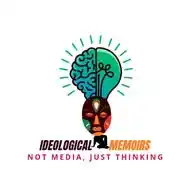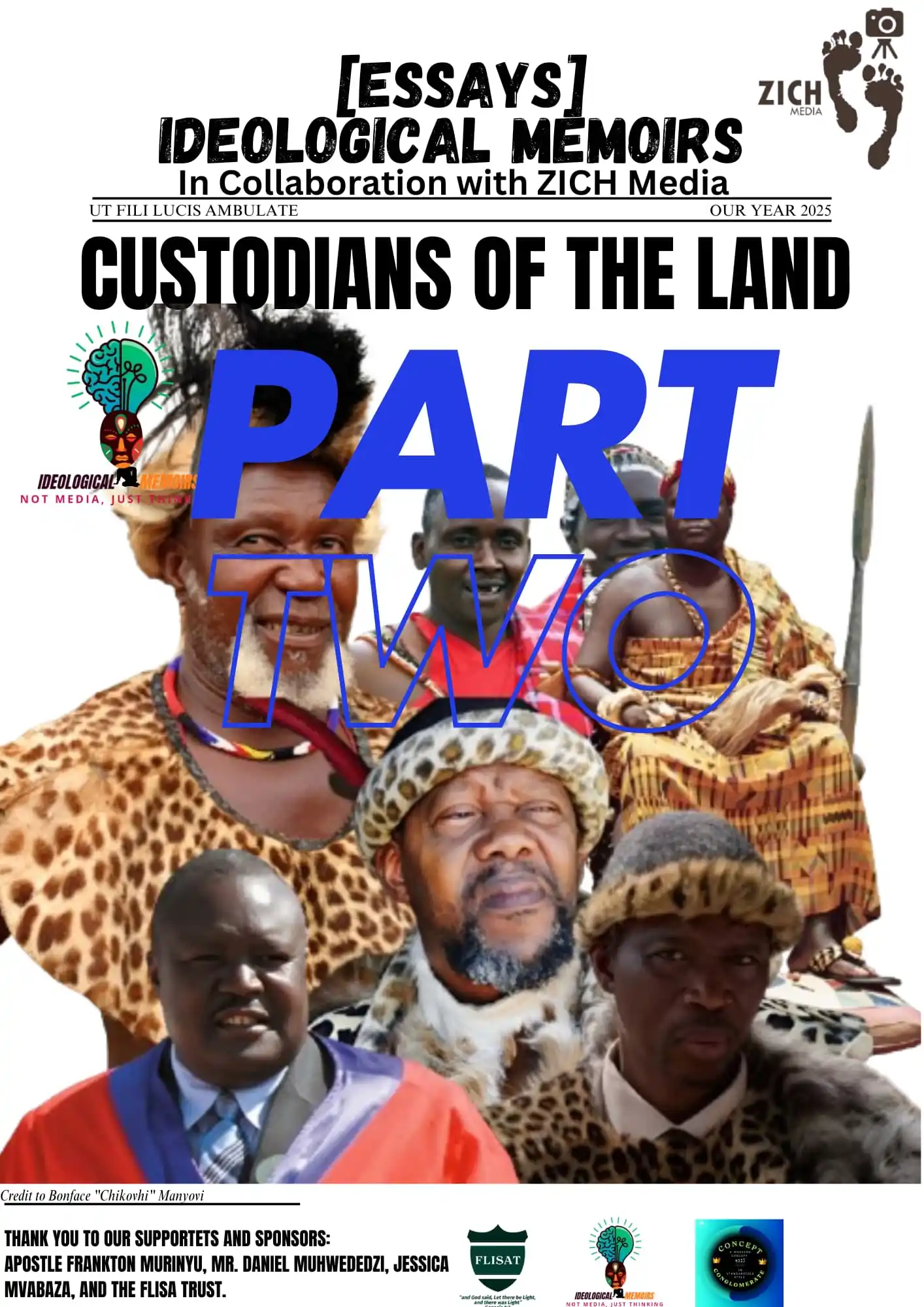
Ideological Memoirs
February 2, 2025 at 08:16 PM
*Part2 Severed From The Roots: Destruction of Cultural institutions*
-African land benefits others over its own sons and daughters-
*Compounding Reflection*
"Commander, there's a topic at hand, may we work on it together. *Destroyed pillars of our Traditional Institutions*, what do you think about that?", Mr. Shayamombe told and asked me. I looked into my mind, and i struggled to see where i could start.
The ZICH Media team's Shayamombe later brought up a discussion around ZICH Media's objective, to bring together knowledge from all corners of the Shona cultural domain, and that of the greater Ancient African spiritual and cultural fabric.
There i got the idea, which brought me to seek challenge for the assertion i held. The assertion was as follows, *The destruction of the African Traditional Institutions is not unique to Africans. We aren't victims however are evolving on trend with other peoples of the world*.
The first Christian Roman Emperor, Constantine the Great is often credited, with in Europe having led the eradication of paganism in the Roman empire, and the greater European continent. Paganism here refering to a form of Spirituality that reigned in pre-Christianity or Abrahamic Religion Europe.
Paganism is characterised by polytheism, or the worship of multiple Gods and Goddesses i.e. Greek and Roman polytheism, Norse, Germanic, and Celtic paganism etcetera. Whilst Asia and the Middle East saw their move away from paganism and ancient religions and beliefs much earlier, with Islam and Buddhism being catalysts to this move.
Meanwhile in Africa, it is reported that there's evidence to suggest that early Greek philosophers and teachers studied in Egypt or Africa. Note that these are the same Greeks whom are credited with bringing "civilization" to broader Europe, through their conquests. It was through that information that i acknowledged the complexities of the matter. Henceforth challenging my previously held assertion, awakening a new inquisition.
*What is African Spirituality*
One thing for sure is that it cannot be defined in one term or word. African Spirituality is not monolithic in nature, as it covers a diverse array of traditional beliefs, practices, and rituals, that vary across different peoples, cultures and religions.
However the important thing to note about African Spirituality and Traditional cultural practices, many acknowledge a single God, or practice Monotheism. This is what distinctively differentiates it to Paganism.
*Contemporary Role of African Spirituality in the modern African Spiritual set up*
With in particular here in Zimbabwe, Traditional leaders having have post struggle for independence, taken new center roles, driven by policies such as the Traditional leadership Act of 1998.
The Liberation Struggle itself had been led from Traditional and Spiritual leaders, respectively citing 1st Chimurenga's Sekuru Kaguvi and Mbuya Nehanda. Christianity here in Zimbabwe, i have observed it to be interviewed with many elements of African Spirituality. That isn't a characteristic unique to Zimbabwe however, it is a trend in Sub-Saharan Africa, extending even into African Islam etcetera.
*Traditional leaders; Independence, Governance, and land*
ZICH Media provided me with Tateguru vaTenzi Matosi, born Mr. Herbet H. Mandunya, for me to fulfill my inquisition with. This depthful intellectual did not disappoint at all.
As if rolling up his sleeves to give me a well worked response to my question, he ask for a moment to gather up his thoughts. I had asked him, how it would work giving way to Traditional leaders administrating all land within their dominion.
I also wanted a historical example or instance where this actually worked as they Tateguru vaTenzi Matosi suggested. Okay now let me give you key points of the suggested way it would work:
"Traditional geography of Zimbabwe in relation to a Federal governance like structure of Madzi Mambo, responsible or administering their own dominions/Nyika." VaTenzi Matosi enlightened me.
This system based on Traditional leaders, parallel to what he called the "Inherited colonial system of a Central Colonial Authority, which is saturated with politicism, keeping our peoples distracted with ideas far from cultural or traditional importance, subsequently the living, growth, and expansion of us as a people."
VaTenzi Matosi essentially said it would work by autonomy being given to Traditional leaders, along with powers to govern, and the land unto which to exercise this autonomy and governance over.
This he further explained it to be based on the Economic Development principle, of such as in a federal system. Citing that natural resources or minerals, have often benefited none locals over locals. This would be prevented by a localized power, to oversee that the land benefits the local.
*Conclusion*
This is part of an ongoing national dialogue. I had a great pleasure being introduced to key aspects of the dialogue through this essay. The colonial era saw a great decline of Traditional institutions' influence and importance.
Early post colonial era then saw a rapid resurgence, however limited to within inherited system's parallels. Contemporary, they are facing being questioned, facing being challenged, and struggling for relevance.
Thank you for reading!

❤️
2